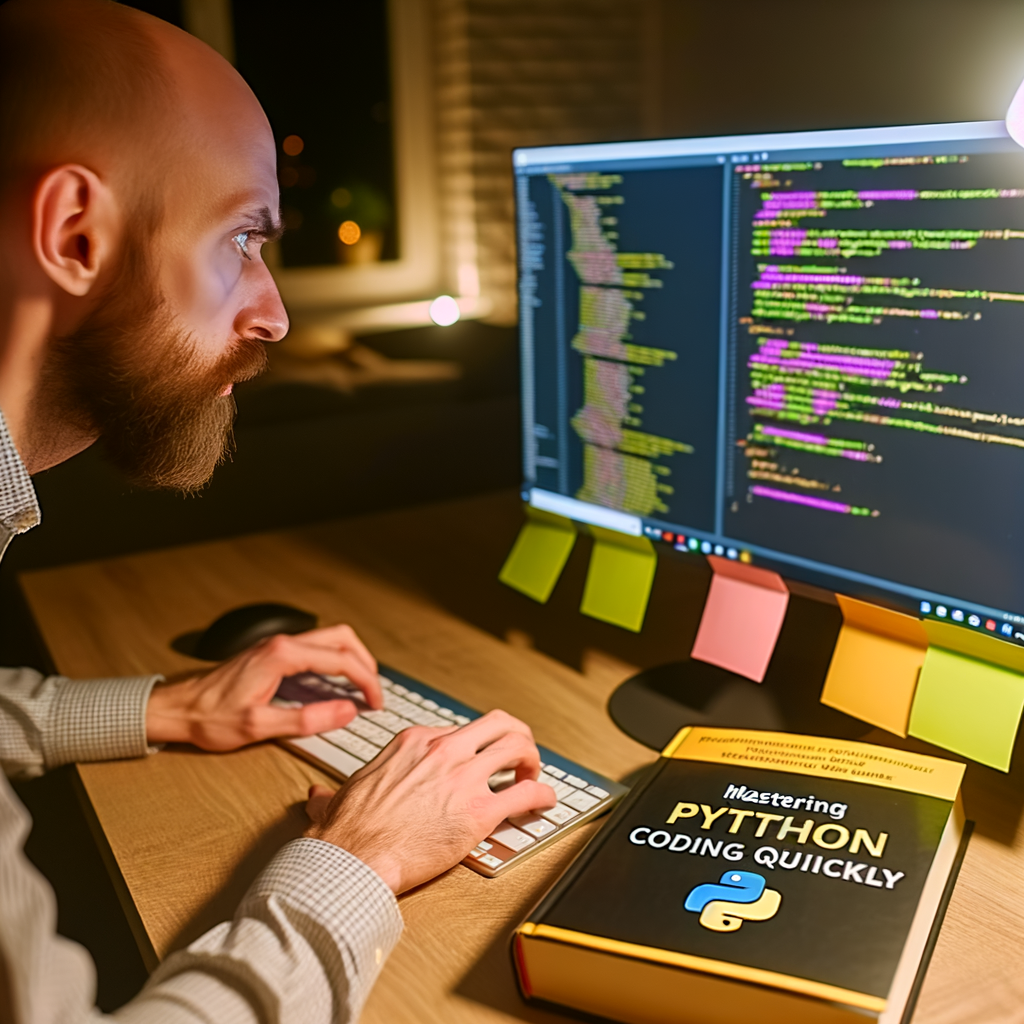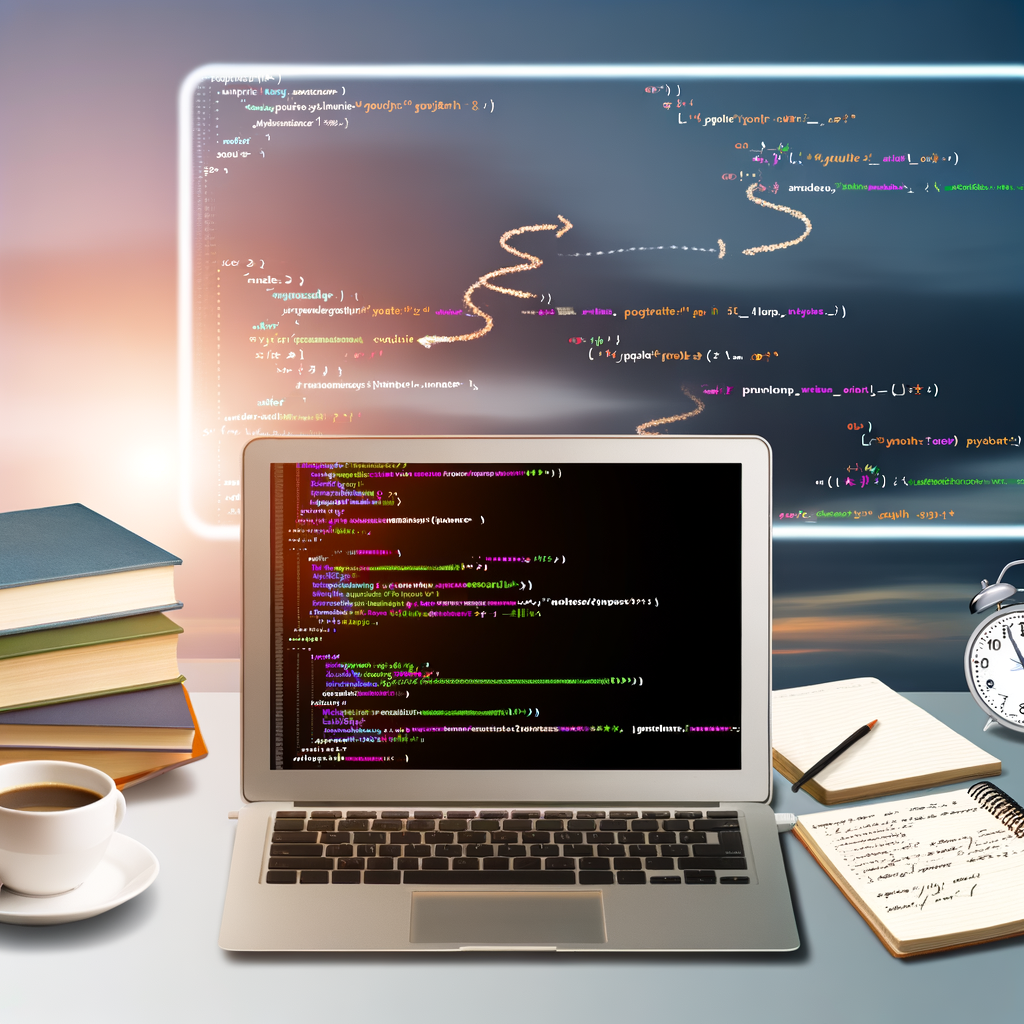From the realms of high-end data science to simple automation tasks, Python has become the go-to language for many savvy programmers. Its simplicity, versatility, and power have made it a favorite in various fields, including web development, machine learning, and even in academic research. If you’ve pondered over dipping your toes into the vast ocean of coding and didn’t know where to start, or if you’re looking for a quick skill upgrade, buckle up for this express journey to coding mastery! Welcome to Mastering Python Coding Quickly
From Zero to Hero: Kickstarting Your Python Journey
Python is a high-level, interpreted language known for its clear syntax and readability, making it an excellent choice for beginners. During the first day of your Python coding journey, focus on understanding its syntax and basic concepts. Start by installing Python and setting up your programming environment. There are several resources and tutorials available online, like Codecademy, Coursera, and edX, to guide you through this process. Once your setup is complete, familiarize yourself with Python’s basic syntax, including variables, data types, loops, and control structures. Mastering Python coding quickly requires immersing yourself in these foundational elements.
As you continue on this journey, you’ll realize that Python is more than just a language—it’s a community. There are millions of Python lovers worldwide who continuously contribute to its vast library of packages and modules. Spend some time exploring Python’s built-in functions and get comfortable using its standard library. Also, don’t forget to sink your teeth into Python’s ‘Zen’—a collection of 19 guiding principles that will help shape your coding philosophy!
The key to mastering Python (or any language, for that matter) lies in practice. On your first night as a Python programmer, try to solve basic problems. Websites like HackerRank, LeetCode, and Codewars offer a plethora of practice problems that cater to various skill levels. Remember, Rome wasn’t built in a day, and neither will your Python skills. But with steady strides, you’re well on your way from zero to a Python hero!
Speed Coding: Mastering Python Syntax in a Jiffy
Day Two of your Python journey is all about speed coding. Mastering Python coding quickly will require a combination of studying and active coding practice. A deep dive into Python’s syntax will introduce you to unique aspects of the language like its use of indentation and how it handles object-oriented programming (OOP). These are the elements that make Python stand out from its programming language counterparts.
As you get comfortable with the syntax, start exploring Python’s extended toolkit—its extensive range of libraries and frameworks. Libraries like NumPy, SciPy, and Pandas simplify complex tasks like data analysis and manipulation, while frameworks like Django and Flask make web development a breeze. Getting a grasp on these tools will exponentially increase your coding speed and efficiency.
The mantra for mastering Python syntax in a jiffy is practice, practice, and more practice. To become proficient, you must write code every day, make mistakes, learn from them, and write more code. Participate in coding challenges, engage with Python communities on platforms like Reddit or StackOverflow, and don’t be afraid to ask for help. Remember, every line of code you write brings you one step closer to mastery!

Weekend Warrior: Conquering Advanced Python Concepts in 72 Hours
As the final day of your Python weekend dawns, it’s time to tackle some advanced concepts. Start with classes and objects, which are the building blocks of Python’s OOP paradigm. Understanding OOP concepts like inheritance, encapsulation, and polymorphism will provide a solid foundation for your future Python projects.
Next, turn your attention to Python’s exception handling system. Learning how to correctly predict and handle potential errors in your code will make you a better, more effective programmer. Finally, conquer file I/O operations and get to grips with Python’s capabilities for interacting with databases.
Your last night as a weekend warrior is the perfect time to apply all these concepts to a simple project. Building a project will consolidate your learning and give you a tangible result for all your hard work. It could be a simple script to automate a repetitive task, a dynamic website, or a machine learning model—the choice is yours. You’ve learned, you’ve practiced, and now it’s time to create!
Summary
In 72 hours, you’ve journeyed from a Python novice to a confident programmer, equipped with a solid foundation and ready to tackle more complex projects. You’ve embraced Python’s philosophy, mastered its syntax, delved into its powerful libraries, and navigated through advanced concepts. To continue your learning and take your skills to the next level, particularly if you’re interested in web development, consider exploring a specialized online course. We recommend checking out this comprehensive Python course on Coursera, which includes a focus on the Django web framework. It’s an excellent resource for deepening your understanding of Python and expanding your capabilities in developing robust web applications. You can find the course here. This course is tailored to help you build dynamic sites and applications, further empowering your journey in Python programming.
For more E-learn.guide blogs on Development category, click here.












